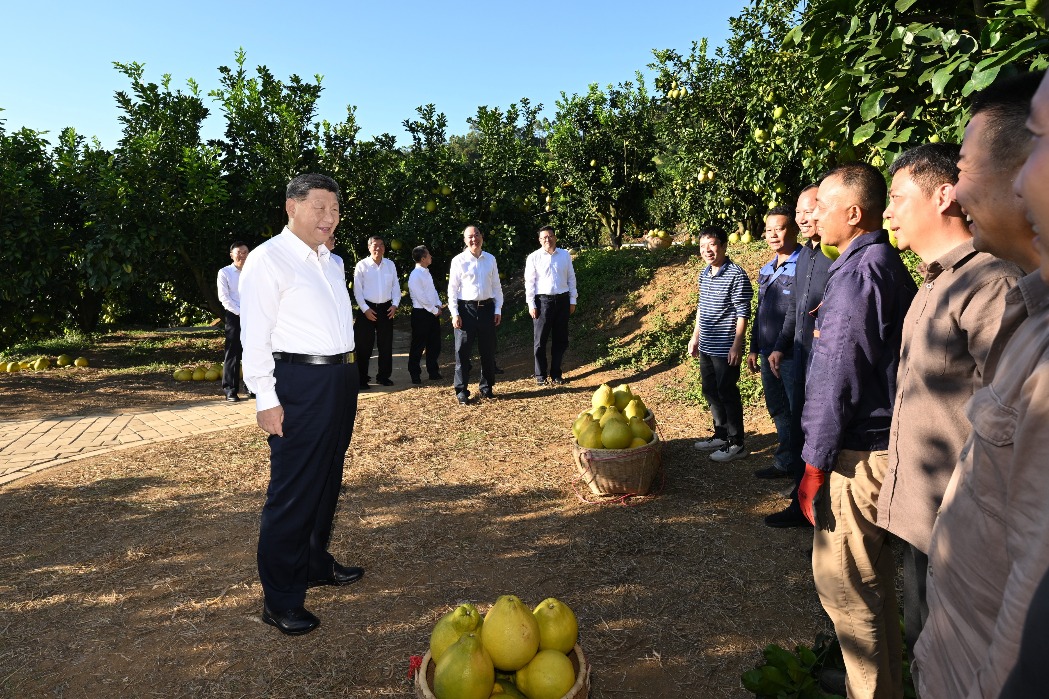Selective memory remedy


By raising awareness of its war against Japanese aggression, China is reclaiming the importance of the Eastern front in the World Anti-Fascist War, making recollection of the struggle more inclusive
This year marks the 80th anniversary of the victory in the World Anti-Fascist War, a milestone that should unite humanity in reflecting on the darkest chapter of modern history. Yet this commemoration arrives amid troubling currents: Historical revisionism persists, from Japan's recurring textbook controversies that sanitize wartime atrocities to the instrumentalization of World War II memory in conflicts such as the Ukraine crisis. These trends not only distort the past but also erode the shared understanding of how global solidarity defeated tyranny, making it more urgent to address the unequal representation of wartime narratives.
Nowhere is this imbalance more evident than in the marginalization of Asian anti-fascist fronts. The Chinese People's War of Resistance Against Japanese Aggression (1931-45), which tied down the bulk of Japan's military forces at its peak and prevented their deployment to other theaters, remains a footnote in many global curricula. Admittedly, the pedagogy of war history differs drastically in the East and the West, determined by the very different memories of their peoples. However, does this necessarily justify the marginalization of the achievements on the Eastern antifascist front in Western history classrooms when teaching the history of World War II?
The marginalization of Eastern narratives stems from deep-rooted structural biases. Postwar geopolitics entrenched a Western-centric framework: The Nuremberg Trials and D-Day commemorations, while vital, established a Euro-centric lens that prioritized Allied operations in Europe. Academic traditions, shaped by Western institutions, often sidelined non-Western sources, treating Asian experiences as "peripheral" to the "main" conflict. Popular culture has amplified this gap — Hollywood's prolific World War II films, from Saving Private Ryan to Dunkirk, have cemented D-Day and European theaters in global consciousness, while Eastern stories remain underrepresented.
China has now responded by emphasizing a narrative that reclaims and shares a broader and more inclusive wartime history. Enhanced by the 2015 United Nations Educational, Scientific and Cultural Organization's inscription of the Nanjing Massacre archives into its Memory of the World Register, the Memorial Hall of the Victims in Nanjing Massacre by Japanese Invaders has raised international awareness of the atrocity. It has driven sustained global media coverage and elevated its status as a center for World War II research and curation. Official data of the Memorial Hall show that in May 2025, the number of international visitors was 238 percent more than in May 2024, with visitors encountering preserved evidence — photographs, survivor testimonies and archaeological remains — that make the 1937 atrocity tangible and counter historical erasure.
Movies have become another powerful platform for disseminating this more encompassing wartime narrative. Films such as The Sinking of the Lisbon Maru (2024), which documents Chinese fishermen rescuing British prisoners of war in 1942, and Dead to Rights (2025), which recounts citizens risking their lives to disseminate undeniable photographic evidence of the Japanese atrocities, have screened at major international festivals, reaching audiences in Europe, Southeast Asia and North America. These works humanize Eastern experiences, connecting global viewers to stories of courage that transcend borders.
The Sinking of the Lisbon Maru represents a significant moment in presenting the World War II Eastern front to international audiences. After premiering at the Shanghai International Film Festival in June 2024, the film won Best Documentary Award at the 37th Golden Rooster Awards, and attracted feature articles in The Times and The Guardian. In 2025, it premiered in the United Kingdom at Regent Street Cinema, saw theatrical runs via Everyman Cinemas and Curzon DocHouse, and launched on streaming platforms across the UK and Ireland, aligning with the 80th anniversary of Victory Day. These achievements underscore rising global interest in Chinese World War II narratives and the role of the film in advancing international remembrance.
Together, they challenge the monopoly of Western-centric narratives, offering a more holistic view of World War II as a truly global conflict. As global citizens who are lucky enough to reside in peaceful regions during a prosperous age, we should never neglect that World War II was a collective trauma of humanity. Every battlefield's sacrifices, struggles, and triumphs deserve unflinching documentation. We must transcend ideological divides to confront the suffering of all communities with honesty and empathy, honoring their legacies. Peace, once a distant dream for wartime generations, remains the indispensable goal for today's world.
As we mark 80 years since the victory in the war against fascism, the fight to preserve historical truth continues. The soft power gap in World War II pedagogy is not merely an academic issue — it shapes how future generations understand solidarity, justice, and responsibility. China's initiatives remind us that reclaiming marginalized narratives requires creativity: combining physical preservation, technological innovation and artistic storytelling. Only by honoring all the voices of resistance can we ensure that the lessons of World War II — of unity against tyranny, and the cost of silence — endure. It is not just a memory of 1945, but a living promise we owe to every life lost in both past and contemporary struggles.
Lu Binghua is a researcher at the Intellisia Institute. Chen Dingding is a professor of international relations at Jinan University, Guangzhou, and the president of the Intellisia Institute. The authors contributed this article to China Watch, a think tank powered by China Daily.
The views do not necessarily reflect those of China Daily.
Contact the editor at editor@chinawatch.cn.


































